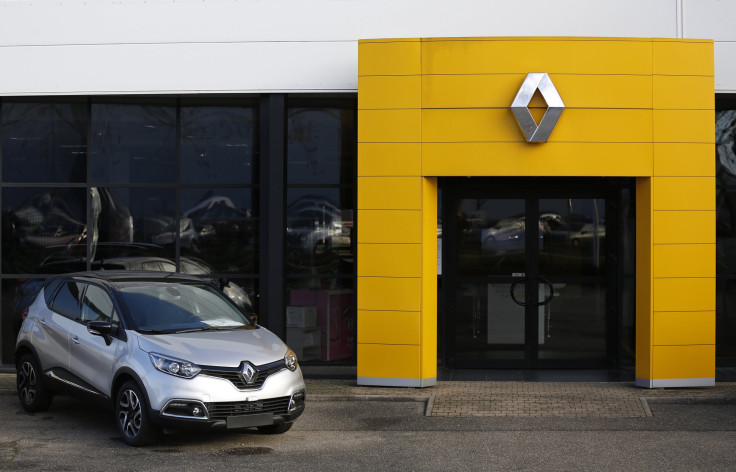Is Renault Being Dragged Into ‘Dieselgate’? French Fraud Probe Allegedly Seizes Nissan Partner’s Computers

Renault SA shares plummeted Thursday after a union claimed investigators seized computers belonging to the French automaker and visited sites where vehicle-emissions testing takes place. The company confirmed on-site investigations took place Jan. 7, including at its Boulogne-Billancourt headquarters, by anti-fraud authorities from the Economy Ministry, according to Agence France-Presse.
The CGT, a national trade union, said in a statement acquired by Le Monde that computers were seized and a fourth site involved in engine testing was searched, which “strongly suggests” the inquiry is the consequence of the ongoing global scandal involving rigged Volkswagen diesel engines.
But Renault, which has a close strategic partnership with Nissan, denied that interpretation. Paris officials have yet to detect any so-called defeat devices like the ones discovered last year in small-engine diesel cars made by German auto group Volkswagen.
Renault shares plunged 20 percent Thursday afternoon in trading on the Paris stock exchange, but the stock clawed back almost half of its loss by the closing bell.
“Renault teams cooperate fully with Royal Commission’s work and any further investigations decided by the Ministry of Economy,” Renault said in a statement Thursday. The Royal Commission, an independent investigative group, was set up by France’s environment and transport minister, Ségolène Royal last year after U.S. regulators discovered the Volkswagen defeat devices. Renault says the investigators have been testing 25 of its cars as part of a larger inquiry to ensure cars sold in France comply with the country’s emissions standards.
Automakers have been under scrutiny since September, when the U.S. Environmental Protection Agency said Volkswagen purposefully designed its 2.0-liter turbodiesel engines to make them appear to be cleaner than they are. On Wednesday Volkswagen boss Matthias Müller met privately with EPA chief Gina McCarthy to address fixing nearly 600,000 affected Jettas, Beetles, Passats, Golfs and Audis in the U.S.
Most of the U.S. cars require a complicated and costly fix to the diesel exhaust-cleaning system. U.S. emissions standards are stricter than Europe’s and it’s unknown the extent that Volkswagen will have to go to remedy affected cars on the other side of the Atlantic and elsewhere, including South Korea.
Diesel engines have historically had a trade-off. They’re more fuel-efficient and powerful, but they also emit more contaminants. Improvements in technology over the years have cleaned up diesel’s dirty reputation, but at the cost of fuel economy and power. Volkswagen has been selling its biturbo diesel engines under the TDI badge as the best of both worlds: cleaner, but without compromising performance and fuel economy.
Fixing the cars to make them compliant with U.S. emissions standards will also make them less fuel-efficient and more sluggish. This complicates Volkswagen’s efforts to convince car owners to fix and keep the cars. The company is facing lawsuits in the U.S. from angry car owners who want the company to buy the vehicles back.
© Copyright IBTimes 2024. All rights reserved.












